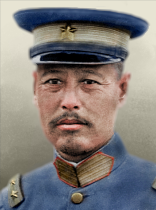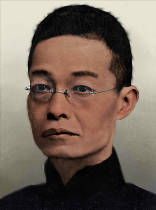KR小日志26:人物特辑——吴佩孚
Minor Monday 26: Character Spotlight - Wu Peifu
Hello and welcome to this week’s more lore-focused Minor Monday! We’ll be discussing the Northern Zhili clique, specifically focusing on its leader - [Wu Peifu, the Jade Marshal] (https://cdn.discordapp.com/attachments/503212973339443202/503227916151422996/Portrait_QIE_Wu_Peifu.png). As we’ve explained in a [prior Minor Monday] (https://www.reddit.com/r/Kaiserreich/comments/adl1a4/minor_monday_23_who_were_the_warlords/), the Zhili clique was formed by Feng Guozhang in the wake of Yuan Shikai’s abortive attempts to declare himself Emperor. Comprised primarily of military officials, in OTL the clique largely collapsed following the 1927 Northern Expedition, with some members splitting off to join their former enemies, the KMT; while others joined the Japanese puppet governments in Manchukuo or Shanghai. Wu Peifu, the primary focus of today’s feature, went into retirement, where he was (probably) murdered by Japanese agents due to his refusal to lead a puppet government in 1939.
大家好,欢迎来到本周更关注剧情的周一日志!我们将介绍北方直系军阀,特别是它的领导人——玉帅吴佩孚。

正如我们已经在之前的一篇周一日志中所介绍的那样,直系是由冯国璋紧接着袁世凯那失败的称帝之后创立的。在本位面中,这个主要由军官组成的派系在1927年的北伐战争后就基本解散了,其中一些成员分裂出去加入了他们过去的敌人——国民党;而另一些人则加入了日本在满洲或上海扶持的傀儡政府。吴佩孚,也就是我们今天所主要聚焦的人物,在北伐之后引退,并在之后(或许是)因为不愿出任傀儡政府首脑而在1939年被日本特工杀害。
“If Luoyang (Wu Peifu) sneezes, it will rain in Beijing and Tianjin” - Cao Kun
“只要洛阳打个喷嚏,北京天津都要下雨”——曹锟
Some Background
一些背景
Born in Shandong province in 1874, Wu entered the Baoding military academy and quickly distinguished himself as a skilled commander during the modernizing reforms of the Beyiang era. He aligned himself with the Zhili faction following the collapse of Yuan Shikai’s “empire”, where he would be mentored by future President Cao Kun. Wu quickly earned a name for himself as a tactical mastermind, deftly winning several wars against the Anhui and Fengtian cliques. In the world of Kaiserreich, he is sometimes known by the moniker of the “Chinese Napoleon” due to his skill on the battlefield and the similar course of his life. Just like the Corsican general, following his betrayal and defeat in 1925 Wu fled to Central China, though he quickly returned and regrouped, leading the forces of the Southern Zhili clique with the remnants of his own to victory in 1927, a stunning reversal of fortune that shocked both Western observers and Chinese alike. While Wu was unparalleled as a battlefield leader his skills in logistics and supply left a little to be desired. In one notable incident, his insistence that his armed train - known as “His Excellency” - arrive to the battlefield first cost him victory in a key battle in 1924, and threw the rail network around Qinhuangdao into chaos for weeks.
吴佩孚在1874年出生于山东省,在之后进入了北洋陆军速成武备学堂并在北洋时代的军队现代化改革中迅速成为一名技艺娴熟的指挥官。在袁世凯的“帝国”崩溃之后,他与直系联盟,并接受了未来的总统曹锟的指导。吴佩孚在巧妙得取得了几次与皖系与奉系军阀战斗的战争后为自己赢得了常胜将军的美誉。而在KR的世界线里,他以他在战场上的娴熟技艺与相似的人生历程有时被冠以“中国的拿破仑”的称号。就像那位科西嘉岛出身的将军一样,在1925年被手下人出卖与被击败之后吴佩孚逃到了华中地区并迅速回到且重组了手下的残军与在南方的直系部队,随后又在1927取得了胜利。这是一次对命运的惊天逆转,同时震惊了那些西方观察家与中国人。尽管吴佩孚作为一名战地指挥官是无与伦比的,但是他在后勤与供应学方面的技能还有待提高。在一次著名的事件中,他坚持要将他的铁甲列车“His Excellency ”号首先投入战场,这使得他付出了这次关键战斗的胜利作为代价,并使得整个秦皇岛周围的铁路网都在数周之中陷入瘫痪。
(注释: 经过日志汉化组的多方查证,我们得出了这个并不是装甲列车的结论,关于这点已经上报给制作组,不久后应该会进行改正,本文到时也会相应更新)

Still, Wu’s tactical genius cannot be understated. One western attache, writing in 1924 observed “Wu was immeasurably superior to any of the Fengtian higher command. It was really almost comic to notice the awe with which Mukden (the Fengtian) regarded his strategic skill, always planning their coups on the sector of the front which was not being visited by Marshal Wu during that particular day, and ceasing their effort and attacking elsewhere as soon as the Generalissimo was known to be on the battlefield in person". His legendary battlefield persona is one of the few reasons the Qing government holds any legitimacy, as few dare to rebel against the finest general in China.
尽管如此,吴的战术天分也不容低估。1924年一位西方使馆专员观察并记录到:“吴比任何其他的奉天高级指挥官都优秀得多。奉天高层对他的战略能力的敬畏简直到了有点滑稽的程度,他们总是只敢在吴佩孚没有在前线某地出现的那一天策划对该地的进攻,而一旦这位大元帅出现在战场上他们就立即停下来改为向其他地方发动攻击。”他这位传奇般的军事天才是清政府保有合法性的少数几个原因之一,因为很少有人敢于公开反抗这位中国最为杰出的将军。
Wu's Personal Beliefs
吴佩孚的个人信仰
Wu was first and foremost a traditionalist, believing strongly in Confucianism and Chinese social structures - the importance of the family unit being paramount. This led to him holding some… eccentric beliefs. For one, he believed the airplane was invented in China during the Warring States period. He also sincerely believed in fortune-telling and nearly all things esoteric. [Zhang Qihuang] (https://cdn.discordapp.com/attachments/503212973339443202/540930396012150784/portrait_QIE_Zhang_Quihang.png), a Zhili general and Wu’s personal fortune teller, once told Wu: “Your destiny is dominated by Water and Wood. (traditional Chinese belief holds that the world is composed of five elements: metal, wood, water, fire, and earth; as opposed to the Greek four.) Fire has little effect on you, while Metal will harm your destiny. When you are 51 and 52, those will be years of metal and I am afraid that will affect your destiny. You must be careful!” Wu’s fifty-first birthday coincided with 1924/25, the fateful year that saw the betrayal of Feng Yuxiang, the Beijing Coup, and the start of the Northern Expedition.
吴佩孚首先是一名因循守旧的人,他坚信儒家思想与传统中国社会结构——在其中家庭至关重要。这导致他有一些……古怪的信仰。举例来说,他相信飞机是在中国战国时代期间被发明的。

是世界上最幅员辽阔历史悠久的国家,显而易见她是世界文化的先驱者。”又由于世界文化起源于中国,她似乎没有理由向他国学习。其次,有人说中国需要向其他国家学习自然科学与技术。尽管如此,吴佩孚还是坚称,在中国的古代文化中科学已经生根发芽并高度发展,比如,公输般在战国时期发明的“飞机原型”(木鸟),以及诸葛亮在三国时期发明的“汽车雏形”(木牛流马)。孙中山强烈主张中国向西方学习,吴佩孚因此十分鄙视他。
他同时也真心地相信算命,并认为几乎所有东西都是自有其奥秘的。张其锽,一位直系将军和吴佩孚私人的算命先生曾告诉吴佩孚说:“玉帅,贵造乃己土生于辰月,是为春月之土。乙木偏官藏遁于月建,颇有力,但乙酉合金,所以'合煞留宫',要取正官做用神。(白话翻译:此命行水运、木运最好,行火运一般,行金运最差。玉帅,您五十一岁、五十二岁那两年,流年是甲子、乙丑纳音属金,恐有劫难在身,望诸多保重。)”吴佩孚的五十一岁生日正好是在1924与25年间,而这也正是冯玉祥反直、北京政变与北伐战争开始的重要一年。

Despite Wu’s eccentric personality, he was a political and military mastermind, and he’s deftly juggled the constant possibility of being backstabbed by one of his generals, the threat of Japanese invasion, and the looming specter of German economic domination over the last decade. He had some education in a Qing Imperial administrative school, but considers himself unfit to rule China directly due to his status as a “military man”, and instead he rules the Qing Empire through his two puppets - Puyi and President Cao Kun. While Cao had formerly been Wu’s mentor, his old age, years of house arrest under Feng Yuxiang, and the suicide of his brother left him a shell of his former self. With little to occupy his time Cao turned to baiju (a Chinese liquor), and the man once renowned for bribing the Assembly into voting for him is now a doddering old man, crippled by alcoholism and regret over his failure to stop Feng a decade ago.
尽管吴佩孚是一个性情古怪的人,但作为一名政治和军事的大师,他在十年中一直灵巧的在那些想要捅他一刀的将军们、日本人入侵的威胁与如影随形的德国经济控制的幽灵之间周旋。他曾经在清朝的行政学校里接受过一些教育,但他还是认为他自己作为“一介武夫”并不适合直接出面统治中国,而是通过溥仪皇帝和曹锟总统控两个傀儡控制了清朝。虽然曹锟曾经是吴佩孚的引路人,但是在晚年却被冯玉祥软禁多年。他弟弟的自杀更是给了他莫大的打击,使他状如行尸走肉。由于时间无处打发,他开始酗酒(一种叫做“白酒”的中国烈酒)。这位曾经因贿选而天下闻名的男子现在不过是一个步履蹒跚的、因酗酒而瘫痪了的老人,又常常因没能在十年前阻止冯玉祥而后悔。
Wu and the Northern Zhili enter 1936 in a precarious position. Their erstwhile allies to the south have drifted further and further into the German sphere, while Wu attempts to limit his relationship with the Kaiser as much as possible. Cao Kun’s condition continues to deteriorate, and despite their best efforts the Zhili’s front in the National Assembly, the Harmony Association, has lost ground to various reform parties. Still, Wu is no stranger to difficult situations, and while he’s been dealt a bad hand he can certainly play it better than most in China.
当一九三六年来临时,吴佩孚和直系军阀北方派正处于一个不稳定的状态当中。他们以前在南方的盟友已经逐渐落入德国的控制之中,而吴佩孚正试图尽可能限制他与德皇之间的关系。曹锟的情况持续恶化,而直系军阀在国民议会里的门面,也就是和谐社团,如今已经丧失了许多改革派的支持。尽管如此,吴佩孚对处理困难的局势并不陌生,并且哪怕他手上都是坏牌,他肯定也能比绝大多数中国人都要打得好。
That’s all for today! Keep your eyes peeled for Friday though, as you’ll be able to see how high the Northern Zhili can rise, or low they can fall…
这就是今天的所有内容了!不过还是请关注星期五的内容,您将能看到北部直系能爬得多高

或是能跌得多低。

本篇日志是洋人提前给我们的,但不确定他们有没有改动什么文本,目前急缺人手校对,所以就放上来了。

